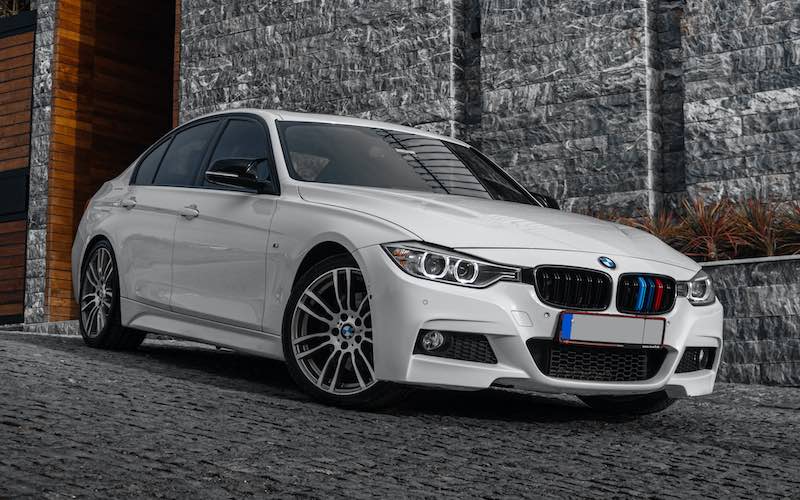The Federal Chamber of Automotive Industries (FCAI) has recommended a road user charge to replace costs such as registration, fuel excises, luxury car taxes, and sales taxes.
"A road user charge is not an additional tax on motorists," FCAI Chief Executive Tony Weber said.
"The reduction in complexity also presents an opportunity to reduce the large bureaucracies required to administer these inefficient taxes and charges, providing additional economic benefit."
The main hurdle is that some taxes are state-administered such as stamp duty, while others are federal such as the fuel excise.
The Victorian Government already has a 2.5c/km road charge for electric vehicles.
"We need this reform to move Australia’s road tax system from last century and ready it for the future of motoring," Mr Weber said.
"Australians want a future that can provide clarity, simplicity, fairness and value to their wallet. There is no better time than now to bring this future into reality."
These calls come after Treasurer Josh Frydenberg teased cutting the fuel excise to News Corp newspapers ahead of next Tuesday's Federal Budget - it currently sits at 44 cents per litre (cpl) of petrol.
New Zealand recently slashed its 77cpl fuel excise down to 52cpl.
Slashing the fuel excise in Australia by 10cpl would deliver a $6 saving to the average motorist when they fill up, yet make government coffers $1.5 billion lighter in six months.
Susan Franks, senior tax advocate at Chartered Accounts Australia-New Zealand, said there are better ways to ease cost of living pressures than the fuel excise.
"History tells us that it would be politically difficult to subsequently reinstate the $12 billion fuel excise, thus cutting fuel excise could result in a permanent reduction in revenue for what may be a temporary problem," Ms Franks said.
"[This is] a cost that Australia, with a budget in deficit and nearly a trillion in debt, can’t afford.
"Cutting fuel excise won’t necessarily result in lower prices at the pump and reduces incentives to transition to net zero.
"Australia is a price taker when it comes to fuel and there is no guarantee that any cost reduction will be passed onto consumers."
Australia sources most of its refined oil via Singapore's 'MOGAS 95' futures index, rather than producing its own.
In 2001 the Howard Government froze the indexation of the fuel excise in the wake of fuel hitting 100cpl - the Abbott Government reinstated indexation in its 2014 Budget.
GST also applies to the cost of fuel after the excise is applied, meaning there is a tax on a tax.
Revenue from the fuel excise has been falling anyway, with Parliamentary figures indicating the tax made up 39% of road revenue in 2013-14, down from 44% just over a decade earlier.
Road User Charge - Purchase & One Year Ownership Cost Comparison
- Car Model: 2022 BMW 330i M Sport wagon
- Fuel Economy: 7L/combined
- Distance Travelled Per Year: 15,000km
Savings.com.au used a sample road user charge of 4c per kilometre travelled.
| With Road Charge | Without Road Charge | |
| Annual Fuel Cost | $1,050 ($1 per litre without fuel excise or GST) | $1,558.20 ($1.484 per litre with fuel excise and GST on fuel excise) |
| Luxury Car Tax | - | $1,729 |
| Stamp/Licence Duty | - | $5,664.75 |
| Annual Registration + CTP (Victoria Metro) | - | $842.85 |
| Road User Charge | 4c/km ($600) | - |
| Total Purchase Price | $82,921 (without duties) | $90,314.75 (including duties approx) |
| Final Cost Breakdown | $84,571 | $92,715.80 |
The above cost breakdown excludes any dealer charges, with data sourced from CarSales.
The Chamber has also suggested axing licensing fees and other costs, which have been omitted for simplicity's sake.
While the first year costs are significantly lower, the Chamber said ongoing costs could even out, and there would be reduced bureaucracy costs from administering these taxes.
"Rather than a myriad of Federal or State & Territory inefficient taxes that each require considerable administration and bureaucracy to manage ... there is an exciting opportunity to replace these inefficient and in many cases diminishing revenue (in per vehicle) raising methods with a more direct method that reflects usage and promotes economic efficiency," the Chamber's report read.
Photo by Sevak Khachatoorian on Unsplash

Ready, Set, Buy!
Learn everything you need to know about buying property – from choosing the right property and home loan, to the purchasing process, tips to save money and more!
With bonus Q&A sheet and Crossword!

